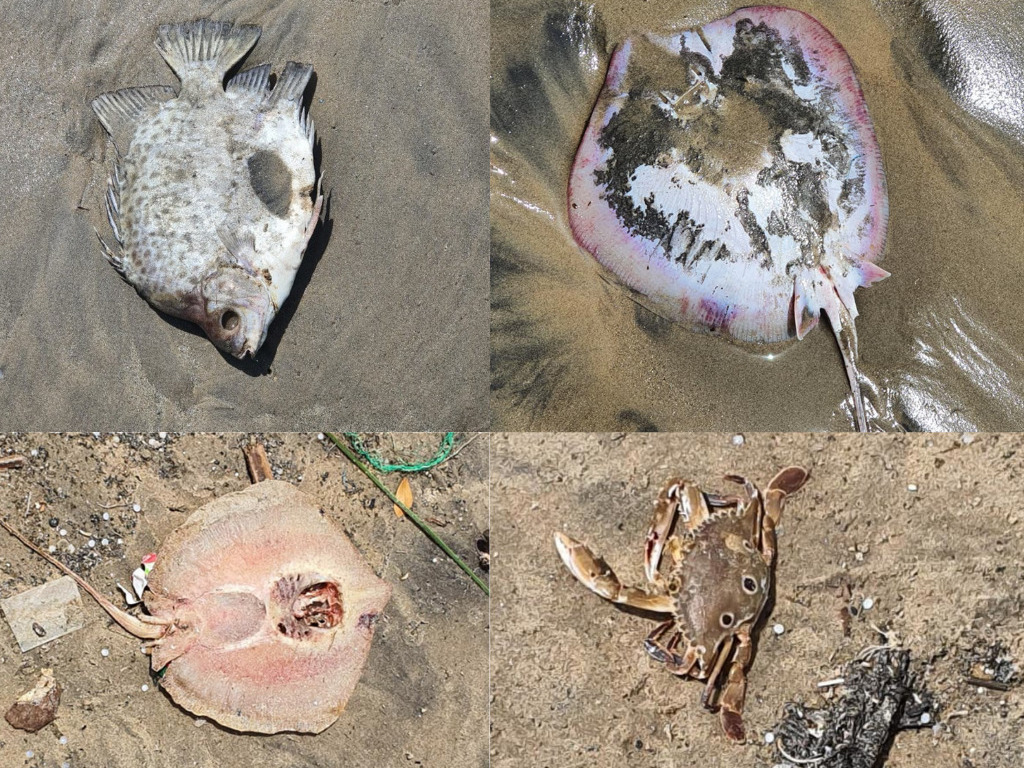Cargo Ship Fire Leaves Sri Lanka’s Beaches Two Feet Deep In Microplastics As Marine Life Washes Up Dead
3 Mins Read
Due to a nitric acid leak in a cargo ship and the subsequent failure to deal with it, vast stretches of Sri Lanka’s western beaches are currently submerged in millions of plastic pellets and debris with several of the country’s Navy personnel working round the clock since last two weeks collecting 200 bags of plastic each day.
A cargo ship registered in Singapore dubbed MV X-Press Pearl was heading to Colombo from India’s Gujarat port and transporting cosmetic raw material, pellets used in the production of plastic bags and around 1,500 containers holding 50,000 pounds of toxic chemicals like nitric acid, sodium hydroxide, and other chemicals and 350 tons of oil, and a mix of heavy fuel and marine fuel.
X-Press Feeders, the company that managed the vessel, said that before the ship reached Sri Lankan waters, a container had been leaking nitric acid, following which the ship decided to offload the container at two stops – in India and Qatar. However, according to the company, they were refused by the port authorities of those areas saying “there are no specialist facilities or expertise immediately available to deal with the leaking acid.”
Subsequently, the crew members were evacuated and on May 20, a fire broke out in the ship due to the leak. A spokesperson for Sri Lanka’s Navy said that the fire was initially contained, but soon after, thick, black smoke was still seen rising from the ship due to several chemicals present in the vessel with authorities having a tough time in putting off the fire.
As a result, piles of microplastics have ended up on the country’s coastline with several sea turtles, birds and fish turning up dead with burns on their bodies.
Sri Lanka’s Marine Protection Authority (MEPA) said that this microplastic pollution can lead to years of irreversible ecological damage to the Indian Ocean island. Chairman Dharshani Lahandapura said: “This is probably the worst beach pollution in our history.”
MEPA further warned that due to the oils present in the ship, there is a high chance of an oil spill emergency occurring that could damage beaches along a 30 kilometer stretch of coastline from Negombo to Dikowita.
Furthermore, local officials have warned of “slight acid rains” due to the emissions released by the nitrogen dioxide present in the burnt cargos and the sulfur dioxide present in these rains could cause chronic respiratory problems.
Suspending all its fishing activities along its 80-kilometer (50-mile) coastline, Sri Lanka has launched a criminal investigation into the matter and demanded for US$17 million in compensation to clean up the mess, with locals already starting to pick up the pellets near the capital Colombo. The police have questioned the crew and collected contaminated water samples sending them for testing.
An employee at a hotel in the coastal town of Negombo, Dinesh Wijayasinghe, said: “I have never seen anything like this before. When I first saw this, about three to four days ago, the beach was covered with these pellets. They looked like fish eyes.” He added that since the fire began, authorities have been collecting 200 bags of plastic daily. “Still, more keeps washing ashore. We are told not to go to this area. So we are keeping away.”
Around 10 trillion plastic pellets are spilled annually that leads to fatalities in over 800 marine species and even humans end up consuming these hazardous pellets through seafood.
Lead image courtesy of Sam Chandrasoma.



